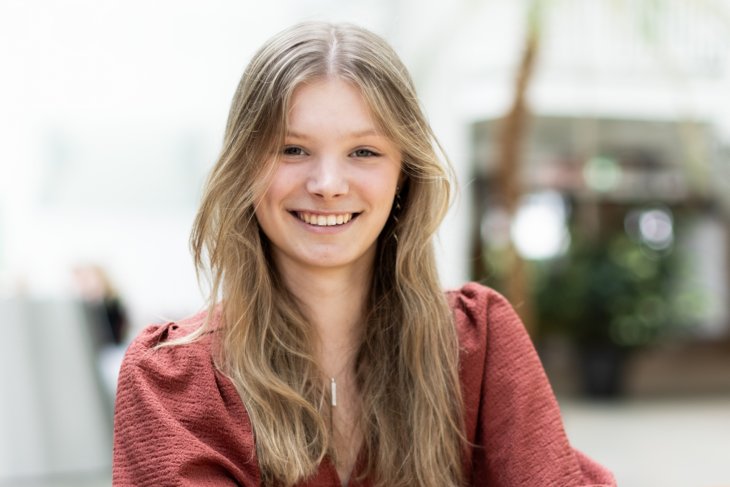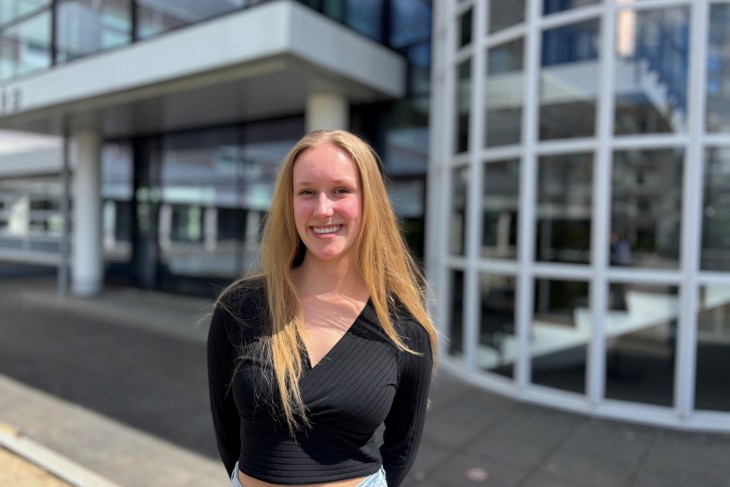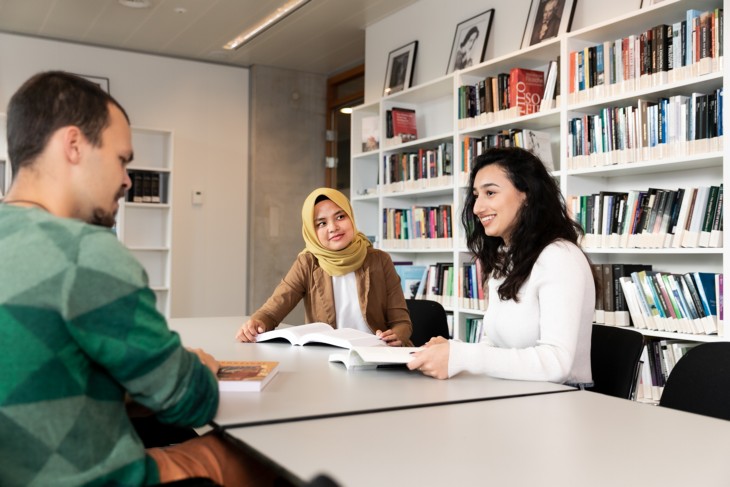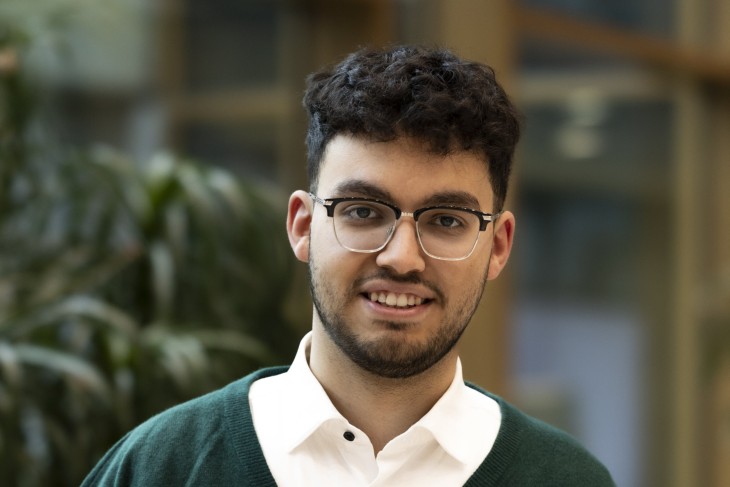“After graduating from high school, I wanted to stay close to home. The University of Twente is just around the corner, so it was the obvious choice for me. While I was browsing different bachelor’s programmes on the website, the Bachelor’s in Management, Society & Technology caught my eye. I decided to go on a ‘Student for a Day’ experience to check it out, and that’s how I got to sit in a class called Politics of Problem Definition.
The professor was so passionate: her teaching got me excited about the subject! I learned that defining a problem is very important to how others perceive it. For example, by presenting an issue in a certain way, government officials show its importance to those in power, so they’re more likely to take action.
Back in high school, I was into policymaking and understanding how people think; I was also the president of the debate team and spent a lot of time discussing politics and debating different issues. So, after the 'Student for a Day' experience, I felt the Bachelor’s in Management, Society & Technology at the University of Twente was perfect for me.
Technology improving society
The Bachelor's programme is broad and covers many areas such as public management, data security, and sustainable cities. Technology is a big part of what we study, and we look at it from different angles. For example, we differentiate between general technology, like everyday objects (tables, chairs, etc.), and digital technology, which includes AI, laptops, and smartphones.
The focus is on how we can use technology to solve societal challenges, but also on understanding that not everything can and should be replaced by technology. In my opinion, there’s still a need for human judgement, for example, in deciding if someone should or shouldn’t get extra financial help from the government. That’s where the human aspect comes in, and it’s something that technology shouldn't fully replace.
Societal challenges
I love that we’re learning to do the kind of work that public managers do, just on a smaller scale: it’s a sneak peek into what we’ll be doing later in our careers.
One assignment I found super interesting was about the impact of technology on obesity and overweight issues among Dutch high school students. We had to design a policy to help treat and prevent obesity, and after a lot of brainstorming and discussion, we came up with an idea to give fitness trackers to the high school students who wanted to participate. The trackers would monitor their steps, activity levels, and calories burned, so they would have a clear overview of their activity and if they need to move more.
In another exciting project, we got to interview a manager from the Red Cross about new technologies impacting their sector. For example, we explored whether drones could be used to deliver food or healthcare products to dangerous or war-torn areas. What I love about this project is that it wasn't only desk research, where you read articles and draw conclusions: we actually talked to people and got firsthand insights. After the interview, we analysed the information and dove deeper into how new technologies have also changed the manager's job and the organisation overall. It’s cool to be doing something so real and directly connected to the public sector.
Looking ahead
Outside of class, I love to meet up with other students, and I’m also a member of a debate team. We do British Parliament-style debates, which is totally different from what I did in high school. Even though I’ve been debating for six years, I’m still learning new techniques and strategies every week. The speeches are longer, and the format is more structured, so it’s been a great challenge. I’m in my second year and can’t wait to see how much more I’ll learn and experience in the coming years!”




